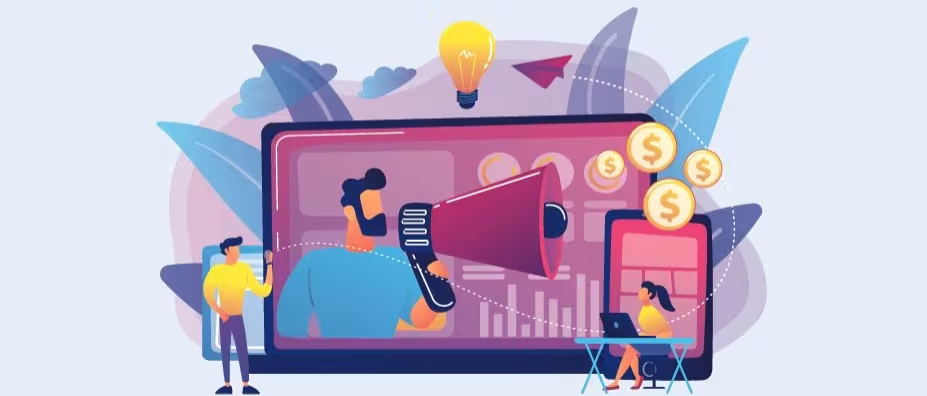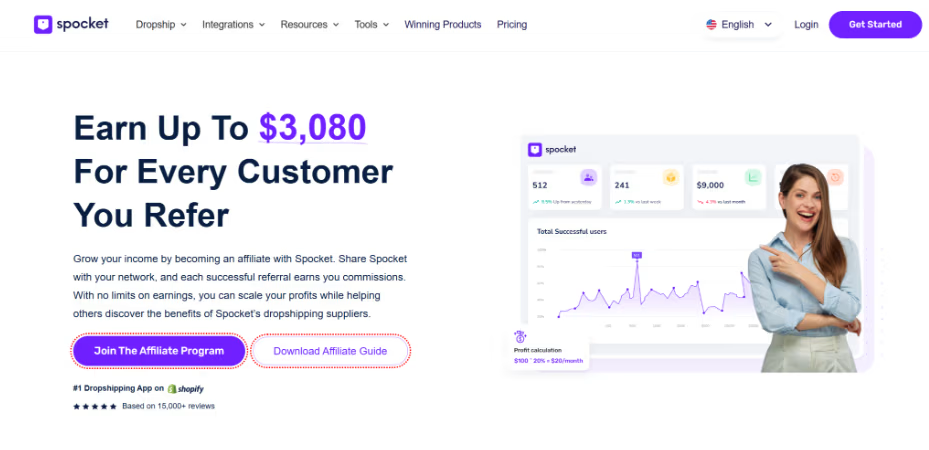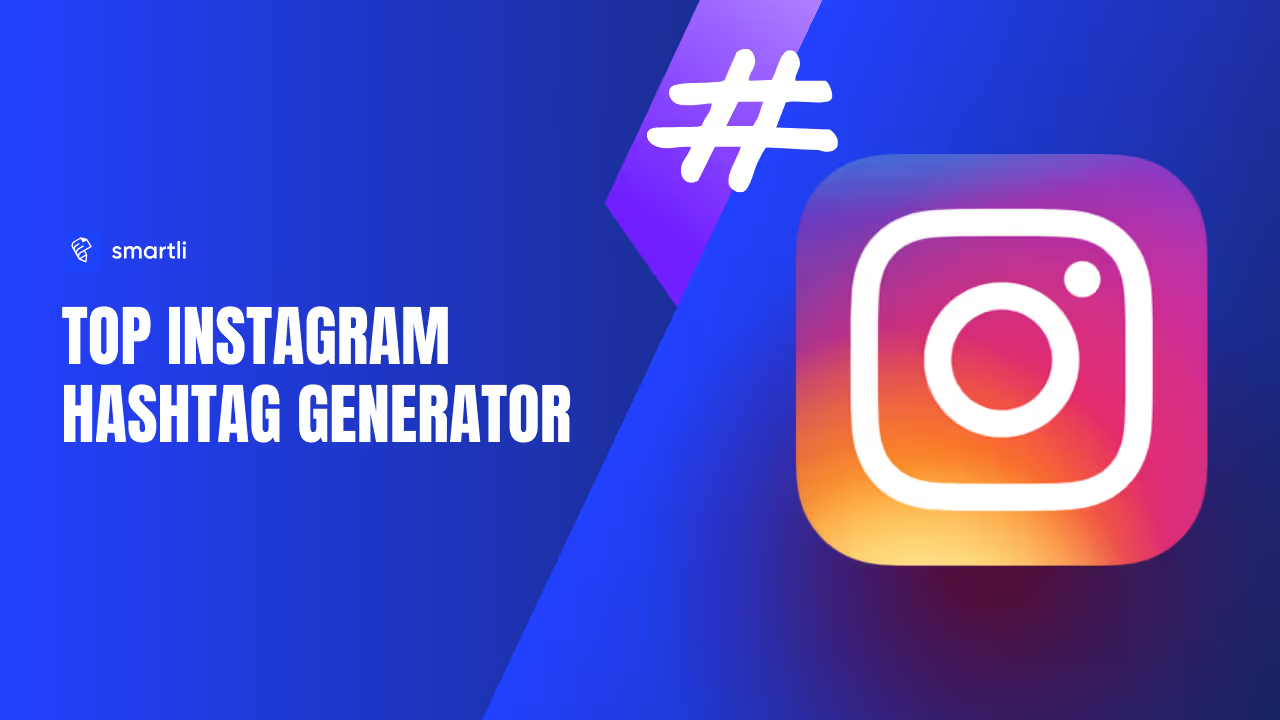Affiliate marketing has come a long way from promoting low-cost products for a few dollars in commission. Today, ambitious marketers are shifting their focus toward high ticket affiliate marketing — a model that rewards strategy, trust, and skill with much higher payouts per sale.
Instead of selling hundreds of inexpensive products to earn the same return, high-ticket affiliates earn large commissions by promoting premium services, software, and courses that deliver serious value to customers. If you’re ready to move beyond small commissions and start building real income streams, this guide will show you exactly how to excel in high-ticket affiliate marketing — from choosing the right programs to building authority that converts.

What Is High-Ticket Affiliate Marketing?
High-ticket affiliate marketing is the practice of promoting products or services that offer high commission payouts — typically anywhere from $500 to $5,000 per sale. These are usually premium offerings such as SaaS subscriptions, online courses, financial products, or luxury goods.
High-ticket affiliates succeed not by chasing volume but by mastering value-based selling and trust-driven marketing. Instead of converting thousands of casual shoppers, they focus on reaching motivated buyers who are ready to invest in long-term solutions.
Examples of high-ticket affiliate products include:
- Business and marketing software (e.g., HubSpot, ClickFunnels, SEMrush)
- Investment and finance platforms
- Premium online courses and coaching programs
- Travel and luxury lifestyle products
- B2B tools and enterprise solutions
The beauty of this model lies in its leverage — a few quality sales can earn what hundreds of small-ticket conversions would.
Why It’s Worth Pursuing High-Ticket Commissions
At first glance, selling high-value products might seem harder, but the long-term rewards are undeniable. High-ticket affiliate marketing attracts serious entrepreneurs because it combines scalability with profitability.
Here’s why it’s worth pursuing:
1. Fewer Sales, Higher Profit
With high-ticket products, you don’t need thousands of transactions to earn substantial income. A single successful conversion can generate hundreds or even thousands of dollars in commission.
2. Attracting Serious Buyers
Higher-priced products typically draw more qualified customers. They’re actively seeking reliable solutions — meaning your content, reviews, and recommendations carry more influence.
3. Sustainable Growth
High-ticket programs often include recurring or tiered commissions. Promoting subscription-based products or premium memberships ensures ongoing income from each customer you refer.
4. Professional Authority
Promoting premium brands helps position you as an expert in your niche. Over time, this authority drives organic growth, referral traffic, and more partnership opportunities.
In short, high-ticket affiliate marketing rewards quality over quantity — and that’s the foundation of a sustainable digital business.
Choosing the Right High-Ticket Affiliate Programs
Selecting the right partner programs is one of the most important steps in your affiliate journey. With thousands of offers online, the challenge lies in finding those that are legitimate, relevant, and profitable. Successful affiliates prioritize trust, relevance, and long-term value when choosing programs.
Here’s what to look for:
1. Strong Commission Structure
Look for programs offering commissions of 20%–50% or flat rates of $500+. The higher the payout, the more worthwhile your marketing investment becomes.
2. Reputable Brand and Product Quality
Promote products that genuinely help your audience. Partner with established brands — not just for credibility but also for long-term conversions and refunds protection.
3. Transparent Tracking and Cookie Duration
Choose programs with reliable affiliate tracking, transparent dashboards, and long cookie durations (30–90 days). This ensures you earn credit for delayed purchases.
4. Recurring Revenue Potential
Affiliate programs offering recurring commissions (common with SaaS platforms and memberships) provide a more stable income stream over time.
Some of the most popular high-ticket affiliate programs include:
- Shopify Plus Partner Program
- HubSpot Affiliate Program
- Coursera Partner Program
- ClickFunnels Affiliate Program
- Bluehost Premium Affiliate Program
- SEMrush Affiliate Program
Each of these platforms aligns with professional audiences, ensuring better-quality leads and long-term relationships.
7 High-Ticket Affiliate Programs
Affiliate programs that pay recurring commissions—common with SaaS subscriptions and memberships—create far more predictable income than one-time payouts. Instead of constantly chasing new conversions, you’re rewarded each billing cycle for customers you’ve already referred. This compounds over time: as your referred user base grows, so does your month-over-month revenue, even if your new-sale volume fluctuates.
If recurring revenue is your goal, prioritize reputable software and platforms with clear tracking, solid retention, and professional audiences. Here are some well-known programs to explore:
Spocket Affiliate Program

A strong fit if your audience includes e-commerce founders and dropshippers. Spocket’s program is designed around paid plan referrals, with a streamlined dashboard and promotional assets to help you drive consistent, long-term commissions.
Shopify Affiliate Program (and the broader Shopify Partners ecosystem)
Well-established brand recognition, strong conversions for commerce-focused audiences, and robust partner resources.
HubSpot Affiliate Program
Popular in B2B and marketing circles with tiered product lines, strong brand trust, and a mature content library you can leverage.
Coursera Affiliate Program
Education and upskilling offers that resonate with career-focused users; wide catalog for segmented recommendations.
ClickFunnels Affiliate Program
Sales-funnel software with a large community and educational content ecosystem that supports high-intent traffic.
Bluehost Affiliate Program
Hosting is a perennial need for new sites; pairs well with “start a blog/website” content and beginner tutorials.
Semrush Affiliate Program
Widely used SEO/marketing suite; aligns with professional marketers, agencies, and serious creators.
Profitable Niches for High-Ticket Affiliate Marketing
Not every niche works for high-ticket affiliate marketing. To excel, you must choose industries where customers are already prepared to spend more for premium results.
1. SaaS and Technology
Software-as-a-Service (SaaS) platforms dominate high-ticket affiliate programs because they solve complex, ongoing business needs. Tools like CRM software, marketing automation systems, and AI-driven analytics often pay recurring commissions.
2. Finance and Investments
Affiliate programs in the finance sector — covering trading, investing, and personal finance — offer some of the highest payouts. Customers in this niche typically have strong intent and high lifetime value.
3. E-Learning and Coaching
Online education and mentorship programs have exploded in popularity. Promoting reputable online courses or coaching packages can yield commissions ranging from $500 to $2,000 per sale.
4. Travel and Luxury
High-end travel services, resorts, and luxury lifestyle products attract wealthy clients who are willing to pay more for exclusivity. Affiliates in this space benefit from generous one-time commissions.
5. B2B and Marketing Tools
Business-to-business (B2B) software solutions — including analytics, hosting, and automation tools — deliver consistent affiliate revenue because companies value long-term reliability.
Pro Tip: Choose a niche where you have personal knowledge or interest. Authenticity builds trust, which is critical for high-ticket conversions.
Essential Skills to Succeed in High-Ticket Affiliate Marketing
The difference between average affiliates and top performers lies in skills, strategy, and consistency. To excel in this field, you must go beyond link-sharing and master relationship-driven marketing.
1. Build Relationships and Authority
People buy from affiliates they trust. Develop credibility through educational content, personal insights, and honest product comparisons. Authority grows when your audience sees you as a problem solver, not a salesperson.
2. Master Consultative Selling
High-ticket products often require personalized guidance. Learn to present solutions that align with customer pain points, focusing on transformation and results instead of just price.
3. Develop Content Strategy
Invest time in content that builds long-term value — such as in-depth guides, webinars, and case studies. Quality content attracts organic traffic and positions you as an expert.
4. Learn SEO and Paid Advertising
Organic search and paid ads complement each other. Use SEO to attract long-term visitors while leveraging targeted ads and retargeting to convert high-intent audiences.
5. Understand Analytics and Conversion Tracking
Successful affiliates analyze what works. Use tools like Google Analytics, Voluum, or ClickMeter to measure conversions, optimize pages, and scale campaigns efficiently.
Marketing Strategies That Drive High-Ticket Sales
High-ticket affiliate marketing thrives on strategic storytelling and credibility. The best affiliates combine education, engagement, and follow-up to build strong conversion pipelines.
Here are key strategies that deliver results:
1. Build an Authority Website
A niche blog or authority site remains one of the most effective tools for affiliate success. Create in-depth reviews, comparisons, and tutorials that demonstrate real expertise and value.
2. Create Lead Magnets and Email Funnels
Offer free resources — like checklists or mini-guides — to collect email leads. Then nurture them through automated email sequences that build trust before introducing high-ticket offers.
3. Host Webinars and Workshops
Live events are perfect for promoting premium products. They allow direct interaction, credibility-building, and the ability to address objections in real time.
4. Leverage Video Marketing
YouTube and short-form videos are powerful tools for explaining complex products visually. Product demos and testimonial-driven videos often outperform written reviews.
5. Build a Personal Brand
Position yourself as an expert rather than a promoter. A personal brand builds recognition and attracts partnerships with premium brands, multiplying your affiliate potential.
Common Mistakes to Avoid
Even experienced affiliate marketers can lose focus when chasing commissions without a clear strategy. High-ticket affiliate marketing requires precision — it’s about building authority, not just promoting expensive products. Below are five of the most common pitfalls affiliates fall into, along with practical fixes to help you stay on track and maximize your success.
1. Promoting Everything at Once
One of the biggest mistakes affiliates make is promoting too many products at the same time. Flooding your audience with dozens of unrelated links weakens your message and dilutes trust. Instead of appearing as a helpful expert, you risk looking like a generic salesperson.
Fix Tip: Focus on two or three high-ticket products within a single niche. This allows you to go deeper with your content — writing case studies, tutorials, and reviews that build expertise. A smaller, more focused offering converts better because it demonstrates genuine understanding and credibility.
2. Ignoring Audience Fit
Not every high-ticket product fits every audience. Promoting a product just because of its payout, rather than its relevance, leads to low conversions and potential brand damage. The most successful affiliates align their offers with what their followers actually need.
Fix Tip: Before joining a program, ask: “Would my audience truly benefit from this?” Choose affiliate products that solve real pain points. When your audience sees that your recommendations genuinely help them, your credibility — and earnings — naturally grow.
3. Neglecting Lead Nurturing
Many affiliates make the mistake of treating affiliate marketing as a one-click business. But high-ticket conversions don’t happen instantly — they require relationship-building. Prospects often need time to research, compare, and trust your advice before making a purchase.
Fix Tip: Use email sequences, webinars, and remarketing campaigns to stay in touch with your leads. Share success stories, tutorials, and helpful content that reinforces the value of your recommendation. The goal isn’t to rush the sale but to guide your audience through their decision-making process until they’re ready to commit.
4. Focusing Solely on Commission Size
A large payout may look attractive on paper, but not all high-paying programs are worth your time. Some products have poor support, weak brand reputations, or high refund rates — all of which can hurt your income and reputation in the long run.
Fix Tip: Evaluate affiliate programs beyond just commission numbers. Look at the product’s credibility, user satisfaction, support team responsiveness, and refund policy. A smaller, reputable program with loyal customers can often outperform a higher-paying but unstable one.
5. Skipping Analytics and Tracking
Without proper tracking, you’re essentially flying blind. Many affiliates promote links without measuring which campaigns perform best or where conversions come from. This lack of data prevents you from scaling or optimizing effectively.
Fix Tip: Track every campaign using tools like Google Analytics, Voluum, or ClickMeter. Monitor key metrics such as click-through rate (CTR), conversion rate, and customer behavior. Analyzing your data helps identify what’s working — so you can double down on winning strategies and stop wasting time on low-performing ones.
Tracking, Analytics, and Optimization
The backbone of a high-ticket affiliate business is data. Without it, you’re guessing instead of optimizing. Use analytics tools to understand how visitors behave, where they drop off, and what drives them to convert.
- Google Analytics: For monitoring overall site performance and referral sources.
- Voluum or ClickMeter: For detailed affiliate tracking and split testing.
- Hotjar: To analyze user interactions and heatmaps.
A/B test your CTAs, landing page designs, and ad copy. Small improvements in conversion rate can significantly boost income when each sale pays hundreds or thousands in commissions.
Building Long-Term Affiliate Partnerships
Success in high-ticket affiliate marketing depends on long-term thinking. Building relationships with brands, networks, and your audience ensures steady, scalable growth.
- Partner Consistently: Focus on reliable brands that align with your niche for repeat business.
- Negotiate Higher Commissions: Once you’ve proven your performance, reach out to affiliate managers to request tiered or custom rates.
- Collaborate on Promotions: Co-branded webinars or campaigns with the merchant can significantly boost conversions.
- Diversify Income: Mix one-time commissions with recurring revenue programs for stability.
High-ticket affiliates don’t just sell — they build partnerships that pay for years.
Conclusion
High-ticket affiliate marketing isn’t about luck — it’s about strategy, authority, and long-term value creation. By choosing the right programs, mastering your niche, and building authentic trust with your audience, you can transform affiliate marketing into a sustainable income source.
The key is consistency: create quality content, analyze data, and refine your approach continually. Over time, your efforts compound — leading to fewer sales, higher earnings, and a business model that grows with you.
At Smartli, we help digital entrepreneurs and marketers stay ahead of the curve with insights that make a difference. Whether you’re scaling your affiliate business or refining your strategy, our actionable guides and tools are designed to help you succeed in high ticket affiliate marketing — efficiently, ethically, and profitably.
FAQs About High-Ticket Affiliate Marketing
What qualifies as a high-ticket product?
A high-ticket product is any offering that provides large commissions — usually $500 or more per sale. These are typically premium services, online courses, SaaS platforms, or consulting packages that deliver significant value to the customer.
How much can I earn through high-ticket affiliate marketing?
Earnings depend on your niche, traffic quality, and conversion strategy. Top affiliates often make between $5,000 and $20,000 per month by promoting high-value programs and leveraging recurring commissions for steady income.
Is this model beginner-friendly?
Yes, but success takes time and consistency. Beginners should start by learning affiliate basics with low-ticket offers, then transition into high-ticket products once they’ve built trust, traffic, and marketing skills.
How long does it take to make sales?
Expect a few weeks to several months before seeing consistent results. High-ticket buyers need more nurturing and proof of value, but once your funnels, SEO, and content are optimized, conversions become predictable and scalable.
Do I need a website or blog?
It’s not mandatory, but having a website or content hub significantly boosts credibility and long-term growth. A dedicated platform helps you rank on search engines, capture leads, and build trust — all essential for high-ticket success.














%20(600%20x%20400%20px)_20251231_205555_0000.avif)



